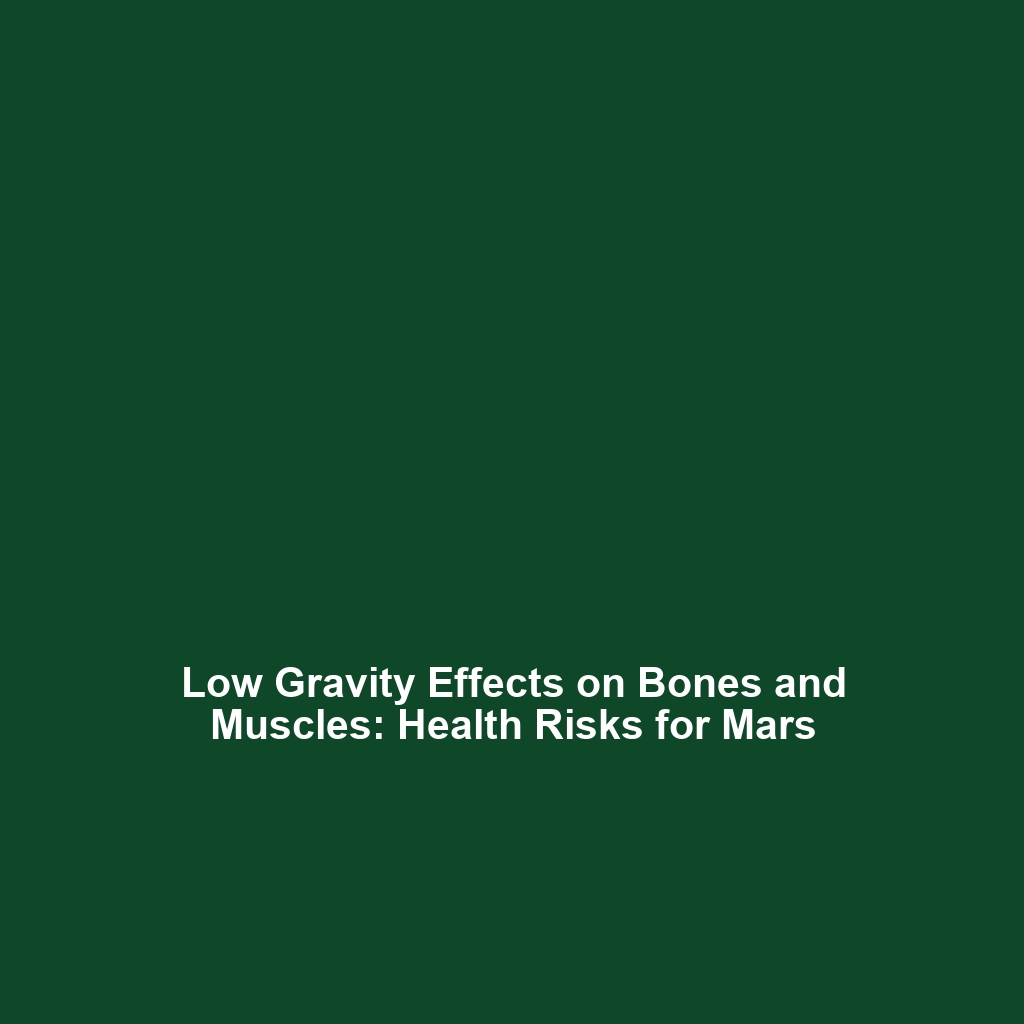Low Gravity and Human Health: Impacts of Low Gravity on Bones, Muscles, and Long-term Health in the Context of Colonizing Mars
Introduction
As the dream of colonizing Mars becomes increasingly plausible, understanding the effects of low gravity on human health is critical. With Mars’ gravity only about 38% of Earth’s, the implications for human physiology are profound. This article explores how prolonged exposure to Martian gravity can impact critical bodily systems, particularly the bones and muscles. Knowledge in this field is not just a scientific curiosity; it is essential for the long-term survival and health of astronauts on extended missions to Mars.
Key Concepts
Impact on Bones
One significant concern in low gravity environments is the loss of bone density. Research shows that astronauts experience an average of 1-2% loss in bone mineral density per month when aboard the International Space Station (ISS). This raises questions about the long-term health of individuals exposed to Martian gravity.
Effects on Muscles
Similar to bone density, muscle atrophy is accelerated in low gravity. The lack of gravitational resistance leads to a decline in muscle mass and strength. This phenomenon raises concerns about astronauts’ physical capabilities during activities on Mars, impacting mission success.
Applications and Real-World Uses
Understanding the impacts of low gravity on human health has practical applications, particularly as we prepare for colonizing Mars. Key areas include:
- Exercise Regimens: Developing tailored exercise programs to mitigate muscle loss during missions.
- Nutrition: Designing specialized diets that support bone health and muscle maintenance.
- Medical Interventions: Innovating treatments to combat the physiological effects of prolonged low gravity exposure.
Current Challenges
Despite advances, several challenges persist in studying the impacts of low gravity on human health:
- Limited data from long-term space missions complicates predictions for Mars colonization.
- Variability among individuals in response to low gravity affects the efficacy of countermeasures.
- The complexity of simulating Martian conditions on Earth hinders experimental validation.
Future Research and Innovations
Future research will focus on understanding the long-term effects of low gravity on human health, leading to potential innovations such as:
- Advanced exoskeletons to support muscle strength and mobility.
- New pharmaceutical interventions aimed at preserving bone density.
- Technologies for in-situ research on Mars to continuously monitor astronaut health.
Conclusion
In summary, the impact of low gravity on human health, specifically regarding bones and muscles, presents significant challenges and opportunities as we aim for colonizing Mars. Understanding these effects not only ensures the well-being of astronauts but also paves the way for successful long-term human presence on other planets. To explore further, consider reading our articles on space health innovations and Mars colonization strategies.
